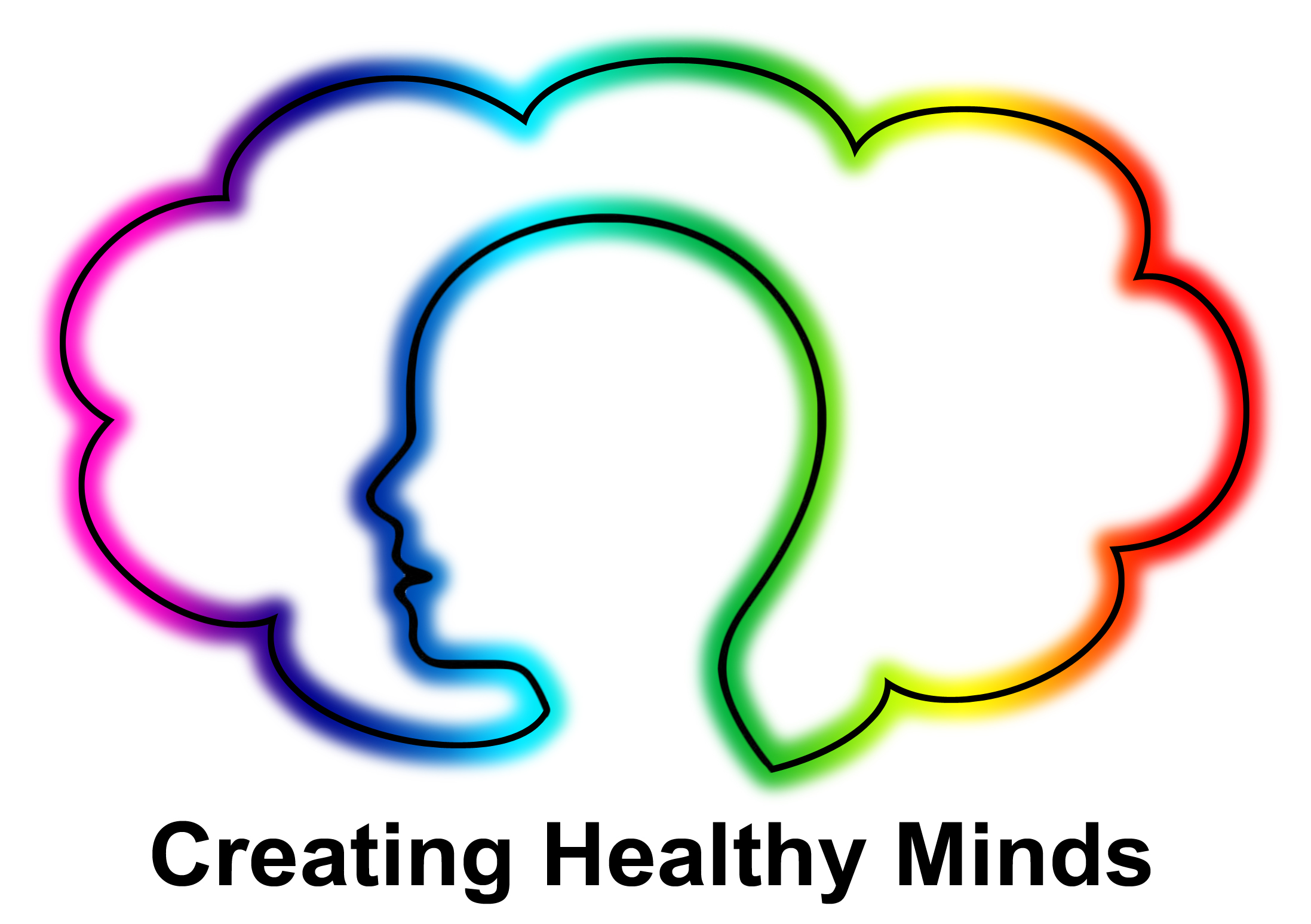Privacy and Data Protection

Lizzie of Creating Healthy Minds complies with the General Data Protection Regulations 2018. This section describes how she collects, store and processes personal data. In working with Lizzie, you can be assured that any personal information shared is used fairly and lawfully, for limited, specifically stated purposes, in a way that is adequate, relevant and not excessive. Personal data is held for no longer than necessary and is kept safely and securely. In working with Lizzie she will ask you to read and consent to the following Privacy Policy: it’s a little long, but if you’re thinking about working together, you may wish to check out the details in advance…
Privacy and Data Protection Policy 2018
Therapeutic interventions, clinical supervision, professional consultations, workshops and training sessions all involve building and sharing trusting, open communication and positive relationships. In our early discussions I aim to explain who I am, what Art Therapy is, about the other services I offer, how the sessions are structured, and what information I need from you. This offers you an informed choice about working with me, and enables me to offer you a professional, safe and ethical service. I am responsible for taking the lead on compliance, personal data, information on procedures, dealing with both internal and external access requests and how personal information is collected and used. When I am commissioned by another organisation to provide an intervention, I adhere to both their and my own data protection policies. I do not share your information with other parties without your express permission or outside of the descriptions below. I never sell any personal details.
Why do I need the information I hold?
I need to request and store your details in order to administer and deliver the service you have requested, and to comply with any legal or professional body responsibilities related to delivering that service.
Personal details:
For art therapy assessments and interventions for a child or young person, you will be asked to complete a client referral form, which will include the child’s full name, date of birth, address, name(s), phone number(s) and email address(es) of parent(s)/carer(s), names/ages of significant family members (e.g. siblings), and invites you to describe the reason for seeking support. It is good practice for me to inform the child’s GP about our work. As such you will be given a consent form, which asks for the name and address of the child’s GP and the child’s NHS number. You will be provided with copies of an introductory and any further letters sent. It can sometimes be helpful to copy letters to other professionals involved with your child, and therefore the consent form also provides space for you to document the name of your child’s school and link-person, and details of any other professionals. We will discuss whether you and your child want me to share letters or information with these professionals and I will only do so if you give your consent. You will also be given a contract which outlines the terms and conditions of the work. There is space for you to initial/sign agreement to the various aspects of the work, and doing so will enable the work to begin. You will be given a copy of the signed contract for your records, and I will also hold one on file.
For clinical supervision or professional consultation, I will need to hold on record: your name, phone number and email address. If I write any references (or in the case of trainees, assessment summaries) for you I will also hold these on file. When working as a supervisor/consultant, I do sometimes make brief notes to aid the work: these are anonymised using the child’s initial only. I do not usually need to know identifiable details of your casework and therefore it is not my practice to hold this information either electronically or on paper form.
For training or workshops delivered, I will hold on file the name and contact details of your organisation. I often evaluate and collect feedback from workshops or trainings, to help me improve and develop the services I offer. I will not ask for identifying information on evaluation forms used. I use feedback only to help me improve and develop the services I offer, unless you/participants of the workshop/training give specific consent for me to use it for other purposes (such as marketing).
Phone number and texts:
The contact phone number(s) you provide me with will be stored on my work mobile phone, using initials or a single name only. The phone is password protected.
Emails:
I keep and use your email address in regard to the art therapy/clinical supervision/related professional work only. Any detailed or private information you choose to send via your email is your choice and responsibility. When corresponding by email I do not use the full name of the child, but use first initial only. If I need to send any lengthy or sensitive information I would endeavour to send this in a password protected document, and the password would be given in a separate email or text. I encourage you to do likewise. I usually send invoices by email, and these are password protected. I store relevant emails for the duration of our work and my email account is password protected.
Written letters, invoices and forms:
To undertake the work fully, safely and professionally, as well as to receive payment, I need to send you and relevant others (such as GPs, paying organisations) letters, invoices and/or other relevant documents. I may also need to receive these from others. I will use the minimal information needed for these to be functional and meaningful. I will store these for my records.
I will write and send detailed reports or letters to you (and/or outside agencies/persons, if you have requested and given your express consent for this) via the encrypted email system described above, or Royal Mail post.
Bank details:
If you pay by BACS please be aware that your chosen reference name/number will appear on my bank records which I must keep for 7 years for HMRC purposes. If I need to print paper statements, and there is identifying information, will endeavour to blank this out where possible.
Clinical notes:
As a professional I must work within the law and data protection legislation (www.ICO.org.uk), the requirements of my insurer (www.howdengroup.co.uk), my professional Body (www.baat.org.uk), my registrant Body (www.HCPC.org.uk) and any organisations you may be linked with such as Education, Health or Social services. Each of these organisations have different recommendations or requirements on retention and storage of notes about therapy and related work. I do write clinical notes to aid my work; these are anonymised using initials only.
Artwork:
All artwork made during an intervention remains the property of the client. My preferred therapeutic approach is that it remains in the therapy space, until the end of therapy/supervision. I endeavour to store it securely in boxes and folders, and out of view of other clients. When therapy/supervision ends you can take it away or leave it behind to be disposed of securely.
Clinical supervision:
Regular clinical supervision is an important part of the therapeutic process, and helps ensure best practice. I visit a skilled clinical supervisor who is bound to the same levels of confidentiality and codes of conduct as myself. There is usually no need for the supervisor to be aware of a client’s full identity. A client’s artwork or digital photos of the artwork may be shown in supervision. Any photographs taken for this purpose are fully deleted afterwards.
Case studies:
I teach/supervise other therapists/professionals, and sometimes publish articles or blogs on my website about art therapy, and it can be very helpful to use photos of artwork, or anonymised examples of cases. I will ask you whether you are happy for us to have a further discussion about giving consent for this. Consent to further uses of your data/information such as in teaching, exhibitions, research or publications will always be sought specifically. Of course therapy is highly personal so I fully understand that many people prefer to keep the process private. If you do not want to discuss me using your case as an anonymised case study, this will not affect or prejudice your therapy in any way.
Summary:
All of these areas listed require me to request, store and write data about you. I hold this information as securely as I can, keeping only what is necessary both before, during and after your therapy has concluded in line with the considerations of all the guidelines and agencies listed above. All paper documents are stored in a locked cabinet, and when it is time to dispose of them I use a high quality shredder. All electronic documents are password protected and where possible, encrypted. My current understanding from the organisations listed above, is that for adults, clinical documents are kept for 3 years beyond the end of therapy, and for children/young people, clinical documents will be kept until 3 years beyond their 18th birthday.
As a professional and ethical practitioner, I will always try to work with you in a way that protects your personal data and confidentiality. The contents of our sessions will only be shared:
1) Where you give consent for the confidence to be broken
2) Where I am compelled by a court of law
3) Where the information you give me is of such gravity that confidentiality cannot be maintained, for example in the case of a safeguarding situation, serious crime or if you are planning to endanger yourself or someone else.
In the rare eventuality of needing to break your confidence, I would always aim to discuss this with you first. If you have any queries please do not hesitate to ask.
Lizzie Philip, September 2018
